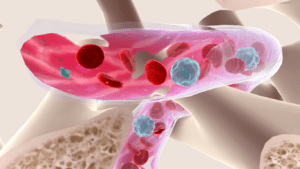This question is most likely asked to a lung doctor not only in Singapore (https://www.icts.com.sg/lung-cancer-specialist-singapore/), but also to many around the world. The answer to this question is a very straightforward NO–smoking is not only the cause of lung cancer. Although the use of tobacco is still the top risk factor for lung cancer development, there are other culprits that can lead to this condition.
Being fully aware of the array of causes can allow you to take steps in preventing this disease to develop and also make informed decisions when taking care of your and your loved ones’ health. Read this article to the very end to know more about the usual suspects that cause lung cancer and other factors that influence this complex disease.
How is Smoking and Lung Cancer Linked?
It is very obvious that the habit of smoking is one of the most well-established factors that increase an individual’s risk for lung cancer. In Singapore, lung cancer is the top cause of cancer-related deaths among men and second in women. It is estimated that about 80% to 90% of lung cancer deaths are due to smoking.
The smoke coming from a cigarette carries over 7,000 chemicals. Many of these chemicals, which include arsenic, benzene, and formaldehyde, are known carcinogenics. Whether you smoke frequently and for long periods of time or do it occasionally, both instances increase your risk of developing lung cancer. Additionally, those who are exposed around people who smoke, particularly children and non-smoking adults, can get lung cancer from secondhand smoke.
Nevertheless, there are also other factors that can cause lung cancer aside from smoking. Let’s take a deep dive in identifying these causes that are non-smoking related.
- Air Pollution
Air pollution is acknowledged worldwide as a major cause of lung cancer. People who live in urban and industrial areas who are exposed to fine particulate matter (PM2.5) for a long time, along with other air pollutants increase their risk for lung cancer. The likelihood of developing the disease is greater if you have been diagnosed with a respiratory condition or if you are vulnerable to cancer due to genetics.
- Carcinogen Exposure Due to Occupations
Several years of being exposed to carcinogens due to your workplace can result in lung cancer development. Particularly if you are working in places where you are constantly exposed to industrial chemicals, namely arsenic, asbestos, chromium, diesel exhaust, and nickel. These known carcinogens are often found in industries such as construction, manufacturing, mining, and shipbuilding. When inhaled, the fine particulate matter or fibres build up inside the lungs over a period of time, despite wearing protective gears. Combined with smoking, your risk for lung cancer increases.
- Exposure to Radon Gas
Radon gas exposure is a leading cause of lung cancer affecting non-smokers. Radon is a natural radioactive gas that can leak through your home, passing through tiny cracks in the walls or the foundation of your house. You would not know its presence as it is invisible, odourless, and tasteless. An indoor air quality test is recommended to see if this harmful chemical lurks inside your house.
- Family History and Genetics
The role of genetic predisposition is an area that has caught increasing attention in oncology. If your family has a history of lung cancer, then your chances of getting it is high even if you do not smoke or you are not exposed to other cancer-causing factors.
Having specific genetic mutations, specifically ALK, EGFR, KRAS, or ROS1 can raise your likelihood of developing lung cancer. For younger non-smoking patients who develop the disease, these mutations may help in determining effective targeted therapies.
- Past Radiation Therapy
Radiation therapy around the chest area to treat diseases like breast cancer or lymphoma, may be a factor that can cause secondary lung cancer development, typically when the treatment was done with high doses of radiation or given at a young age. Cancer can grow gradually–anywhere from 10 to 30 years following radiation exposure. Hence, it is crucial that the health of an individual who was exposed to radiation should be monitored consistently over the course of time.
- Preexisting Lung Diseases
The presence of chronic lung diseases sets up an environment that allows carcinogenesis and the mutation of cells. Chronic lung inflammation or scarring can raise your cancer risk even if you do not smoke. Your condition should be monitored closely through medical assessments and imaging tests that should be done on a regular basis.
Who usually gets lung cancer among non-smokers?
Surprisingly, about 10% to 20% of lung cancer diagnoses affect non-smokers. Lung cancer among individuals who have never smoked are usually younger females who may have some type of preexisting tumours like adenocarcinoma. Other cases are linked to a genetic or environmental cause. In a small number of cases, there is no identifiable cause. What we can be sure of is that it is not impossible for non-smokers to get lung cancer, so if you suspect that you have lingering symptoms, be sure to have these assessed urgently by a medical professional.
What are the distinct symptoms to look for?
With lung cancer, early detection is crucial so that timely intervention can be given. Look out for these key symptoms:
- Coughing up blood
- Cough that is persistent and lasts more than two to three weeks
- Chest pain
- Fatigue
- Shortness of breath
- Unexplained weight loss
If you or someone you care for are or have been exposed to factors that increase the likelihood of developing lung cancer and start to show symptoms, consult with a doctor immediately.
What can you do to reduce the risk of developing lung cancer?
Lung cancer can be prevented. Likewise, it can be detected early, which is critical to improve your chances of surviving the disease. Here are some action items that you can do today to reduce your risk for lung cancer development:
- Have your home tested for radon
- Know your family’s medical history
- Quit smoking
- Schedule regular check-ups, especially if you have symptoms
- Wear protective clothing when exposed to places with known carcinogens
ICTS – Dr Aneez D.B Ahmed
38 Irrawaddy Road #10-38
Mount Elizabeth Novena Specialist Centre
Singapore 329563
Phone: +65 6591 8801
Whatsapp: +65 8875 0389




